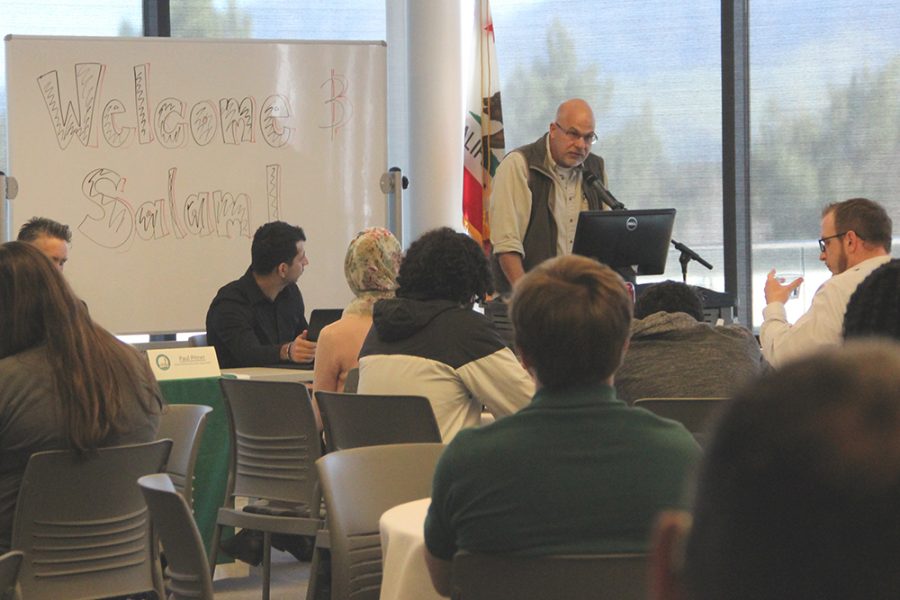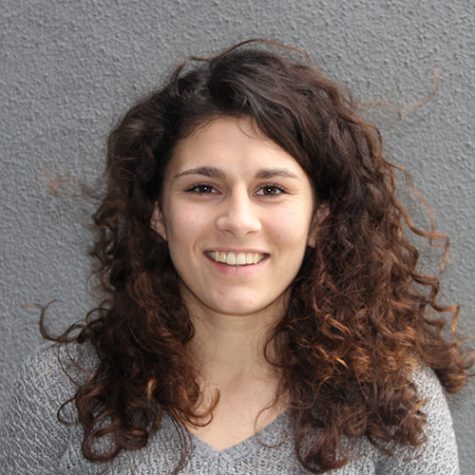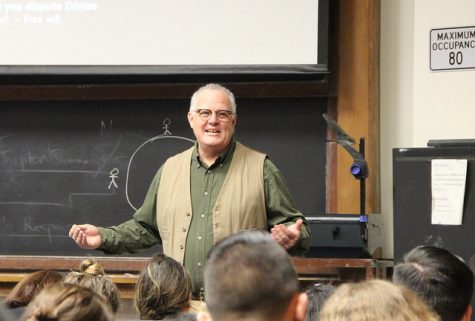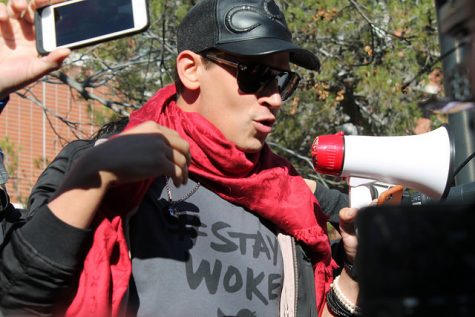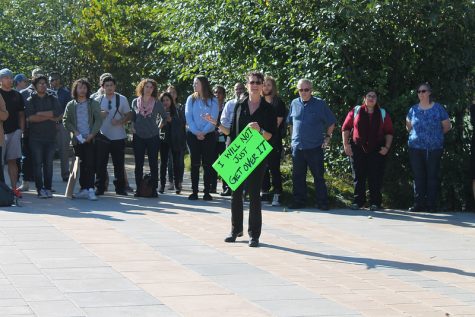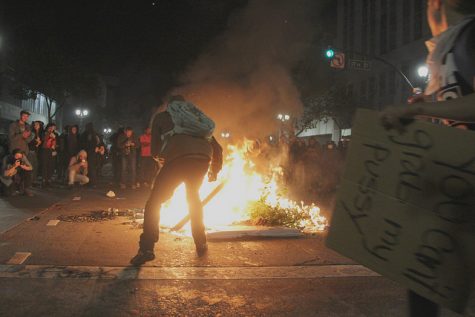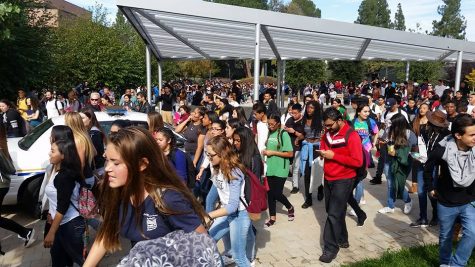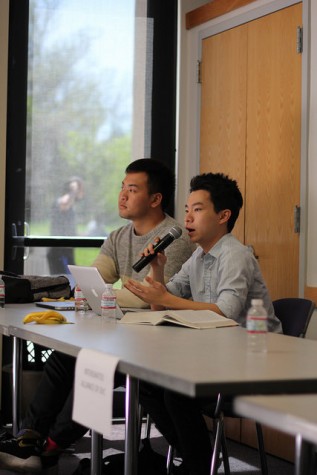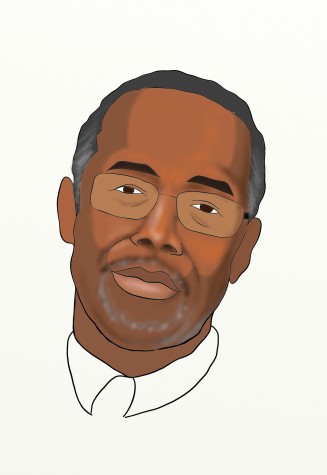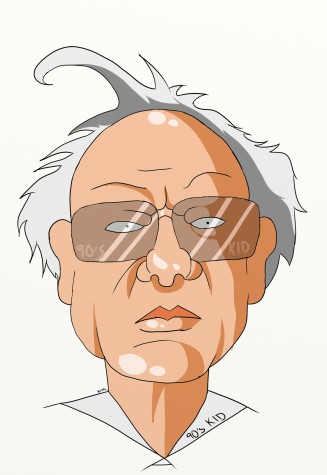Muslims and Veterans come together to tackle misperceptions
John Kropf, retired sergeant of US Army intelligence, addresses the crowd on February 28, 2017.
March 6, 2017
A full house welcomed the Diablo Valley College Muslim and veteran community as they put on a meeting Tuesday in the Diablo Room.
Representatives of the Muslim Student Association and the Veteran Students Alliance were discussing and trying to find ways to dismantle stereotypes within the American Muslim and American veteran communities.
“We are here to understand where they come from, how we can stop them and how we can detach ourselves from them,” Aziz Sadat, member of both the Veterans Student Alliance and the Muslim Student Association said.
Sadat severed for many years for the United States Marine Corps as a translator, culture advisor and instructor in Afghanistan.
Interim President Ted Wieden took the floor in order to express his feelings and concerns about this sensitive topic. “I am well aware of the impact stereotypes can have, this is why this meeting is very important,” he said.
Three DVC staff members were there to talk about different aspects of stereotypes, how to face them and their experiences.
“The Muslim community is an integral part of the American society, and Islam is a religion of peace,” said social science teacher Amer Araim, former Iraqi and United Nations diplomat.
“Islamophobia doesn’t represents American’s values, this racist ideology is not consistent with the one America is based on,” Araim continued.
Social science teacher and retired sergeant of U.S. Army intelligence John Kropf was the second speaker of this meeting. He talked about his transition to civilian life, stating that “college saved me, it was an hard adjustment and it brought me back to life.”
Veterans have to face the look of the others when they come back. “They are seen as dangerous and trained to kill but in reality only a few has to manipulate weapons during their service,” Kropf said.
Sociology has also played an important role in the way we perceive people and our interaction with them, and was discussed during the meeting.
“In order to fight stereotypes we must allow children to have diversity in their life, if you have always seen someone as a threat it is going to be one,” early childhood education teacher Paul Pitner said.
“We have to know each other, learn how to communicate with others.”





































































